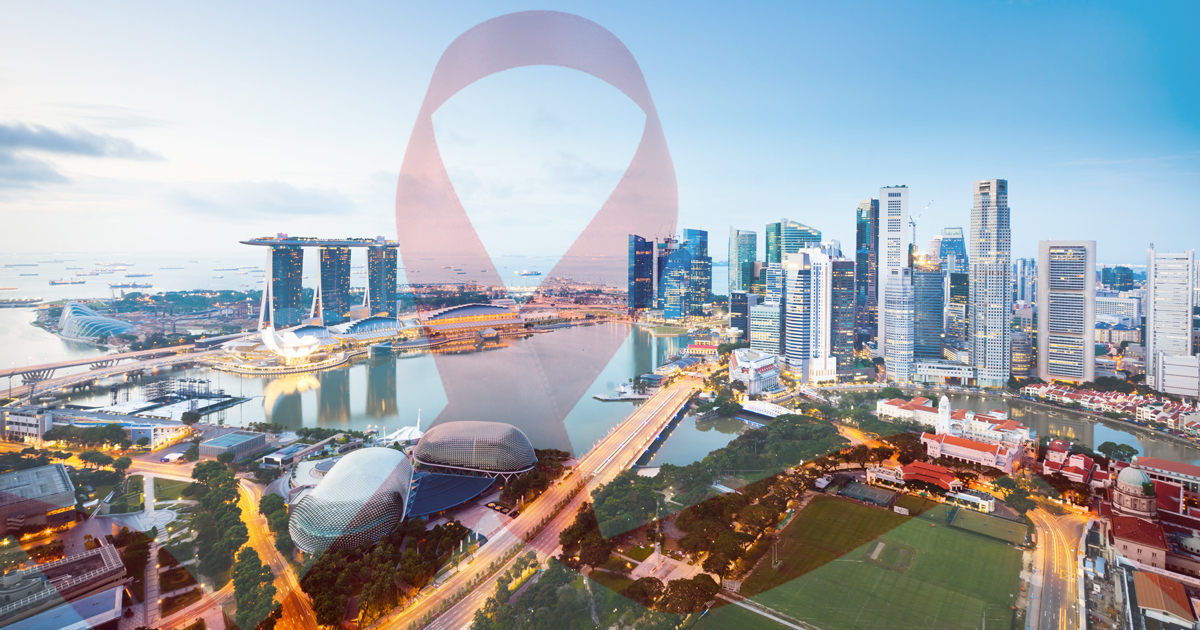When it comes to effective HIV prevention, Singapore has some exciting news to share. The latest reports suggest that the rate of new infections has fallen down to the lowest rate since 1998. These statistics are in line with worldwide trends that suggest a massive reduction in the number of new cases.
Self-Initiated Screening and Other Positive Trends Bring Down New Infection Rates
Channel News Asia reported that in 2022, there were 202 new human immunodeficiency virus infections among Singapore residents. The report is based on data released by the Health Ministry in June 2023.
In comparison, there were 250 new HIV cases just one year prior and 261 new cases in 2020. In 2019, the number of people who found out their status was HIV-positive reached 323.
While these numbers are suggestive of steady positive developments, there were still some troublesome findings. Nearly half of the individuals who got their diagnosis in 2022 had a late-stage HIV infection.
Interestingly enough, 17 per cent of the people who got a HIV-positive diagnosis received the information through self-initiated screening. Most of these individuals were in the early stages of infection. Seven per cent of the infected people got the virus detected during routine screening for HIV.
Of all new cases recorded in 2022, 187 involved men. A higher proportion of the men who have sex with men got their diagnosis through self-initiated testing, especially in comparison with heterosexual men who tested positive.
Men who have sex with men accounted for half of all cases while men who have sex with women contributed to 37 per cent of the new infections. Four per cent of cases occurred because of bisexual transmission and there were three cases of intravenous drug users who got infected this way.
These numbers lead to the logical conclusion that sexual transmission is still most widespread and poses the highest risk when it comes to contracting HIV.
In the end of 2022, there were 9,331 people living with HIV in Singapore. Unfortunately, 2,362 people lost their life over the course of the year.
Steady Decline, Improved Awareness to Continue the Positive Trend
The 2022 report paints consistent picture with prior annual studies that suggest the rate of the infections has been declining.
In the period from 2007 to 2017, there were approximately 400 to 500 new annual infections. In 2018, a gradual decline began and it’s been ongoing ever since. In the past three years, Singapore has finally managed to go down to less than 300 cases per year.
According to the Ministry of Health, everyone who engages in high risk sexual behaviour should get tested at least once every three to six months. Even people who aren’t participating in unprotected sexual encounters with multiple partners (yes, even those in committed monogamous relationships) need to get tested at least once per year for HIV and other common sexually transmitted infections.
Having people knowing their HIV status reduces the likelihood of spreading the virus involuntarily to a partner. A person who is HIV-positive and capable of viral transmission will show no symptoms for prolonged periods of time. This is one of the biggest risks associated with HIV and other prominent STDs like gonorrhoea and chlamydia.
The National HIV Programme has also published its recommendations in an attempt to increase awareness and kickstart positive change.
According to the National HIV Programme, everyone aged over 21 (excluding women over the age of 65) should be offered HIV screening at least once in their lifetime. People who belong to high risk groups need to follow healthcare provider recommendations and stick to a screening schedule.
Individuals who belong to high risk groups should get tested at least once per year, as per the programme’s recommendation. Those who are getting tested for the very first time should also receive a thorough and confidential consultation that will shed more light on important information about HIV and the best ways to prevent an infection.
That consultation should highlight some of the readily available options these high risk individuals can benefit from. A couple of those options include HIV pre-exposure prophylaxis (HIV PrEP) and post-exposure prophylaxis (HIV PEP). It’s also vital for people to understand the fact that HIV and AIDS are no longer a death sentence. With the right kind of antiretroviral therapy, HIV-positive individuals can lead long and productive lives. Some of them will respond to the treatment so well that their viral load will actually become undetectable.
The National HIV Programme also suggests people who are HIV-positive should disclose this information to their intimate partner(s) or spouse. These individuals should in turn get tested, as well.
All of the effort Singapore is putting in awareness campaigns is in line with the 95-95-95 goal that aims to end the pandemic globally by 2030.
As per 2020 data, 82 per cent of HIV-positive individuals in Singapore know their status, 93 per cent of those who are positive and know their status are on antiretroviral therapy and 94 per cent of those who are on therapy have sustained viral suppression. While these results are good, there’s definite room for improvement.
If you don’t know your status, it’s time to get tested. Be in charge of your sexual health and do the responsible thing for yourself and your partner. Contact Shim Clinic now or visit us during working hours every day of the week to learn more about your options and get a thorough confidential consultation.

